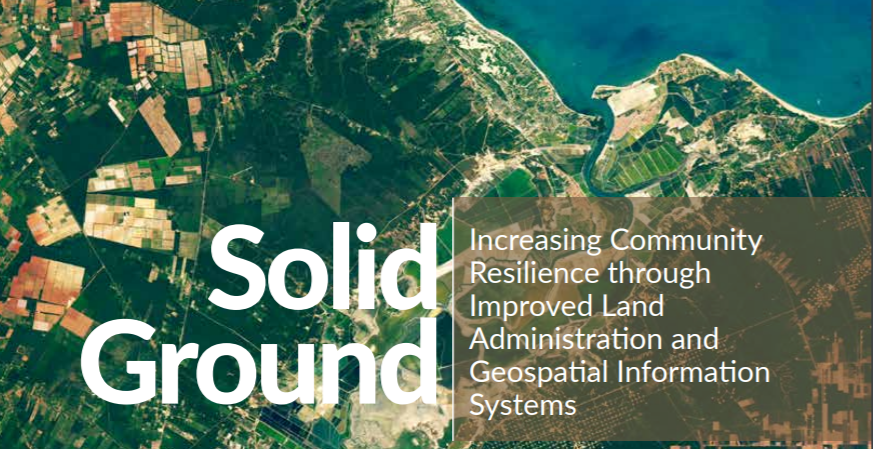This report sheds light on how different pillars of the land management process can be linked to increased resilience of communities. It places particular emphasis on land tenure and land valuation.
Chapter 1 outlines the importance of land and geospatial systems for resilience, first looking at existing global development frameworks for resilience, then describing how land and geospatial systems can help bolster it, and then examining the state of land and geospatial information in low- and middle-income countries.
Chapter 2 explores the key aspects for efficient and effective land administration and geospatial information systems, the importance of land governance, and how these systems work when disasters happen. It presents a series of recommendations to improve the resilience of the systems themselves.
Chapter 3 is primarily aimed at helping countries and practitioners develop land and geospatial systems for resilience. It partly reflects the findings and lessons learned from an investigation involving nine country case studies. It also draws on lessons learned from emergency responses and recovery and reconstruction activities in countries that have experienced disaster events, and from countries vulnerable to disaster events that have been seeking to enhance their land and geospatial systems to improve their disaster risk management.

